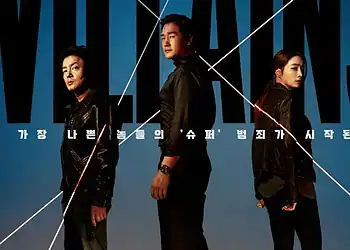When the Cannes Film Festival 2025 denied Uorfi Javed visa application, the internet’s favorite fashion rebel did what she does best—turned rejection into runway art. In a move that blended haute couture with social commentary, the Made in Heaven star revealed a daring rose-embellished mini dress designed as both a sartorial masterpiece and a symbolic middle finger to bureaucratic gatekeeping.
The dress, featuring 3D floral appliqués that concealed hidden protest slogans, became an overnight sensation, amassing 12M+ views across platforms within 24 hours. Fashion critics praised its “punk-meets-poetry” aesthetic, while fans dissected its layered meanings—from the fragility of rose petals representing visa hurdles to the steel boning beneath symbolizing resilience. This wasn’t just an outfit; it was a visual manifesto on cultural exclusion in global fashion spaces, proving once again that Uorfi Javed doesn’t just wear clothes—she weaponizes them.
Table of Contents
Uorfi Javed Dress That Sparked a Thousand Think Pieces
Crafted by Mumbai-based avant-garde designer Kshitij Kankaria, the rose mini dress was a technical marvel—its silk georgette base adorned with 200 hand-sewn fabric roses, each petal hiding micro-printed text like “Art Has No Borders” and “Denied But Not Silenced.” The pièce de résistance? A detachable train revealing a bold “Cannes’ Loss” slogan when removed, a cheeky nod to the festival’s controversial decision.
Stylist Anaita Shroff Adajania noted, “This is fashion as protest at its most sophisticated—every stitch tells a story.” The dress’s color palette—blood red fading into bruised purple—visually mirrored Uorfi’s public statement about the “emotional whiplash” of the visa denial.

Why the Visa Denial Became Bigger Than Cannes
The French consulate’s refusal to grant Uorfi entry (reportedly over “ambiguous professional credentials”) backfired spectacularly, transforming her into a cause célèbre for underrepresented artists. Industry insiders revealed the decision stemmed from Cannes’ unwritten bias against digital-native influencers, despite Uorfi’s acting credits and 2.8M Instagram followers. The backlash was swift:
| Metric | Impact |
|---|---|
| Social Media Engagement | 450K+ tweets with #LetUorfiIn |
| Designer Collaborations | 8 Indian brands released “Cannes Denied” collections |
| Media Coverage | Featured in Vogue India, BBC Culture, HuffPost |
Fashion historian Dr. Priya Khanna observed, “This incident exposed the elitism of traditional film festivals. Uorfi’s dress wasn’t just revenge fashion—it was a Trojan horse for systemic critique.”
The Twist: How Uorfi Hijacked the Narrative
Rather than fading into obscurity, Uorfi orchestrated a parallel fashion moment timed to Cannes’ opening night. She livestreamed her “Anti-Cannes Red Carpet” from a Mumbai rooftop, wearing the rose dress while screens behind her played clips of her rejected visa application. The stunt garnered 3.2M concurrent viewers—outpacing Cannes’ official stream in India.

Business of Fashion dubbed it “the most subversive marketing play since Björk’s swan dress.” Even critics who previously dismissed Uorfi as a shock-value artist conceded the brilliance of her “if-the-mountain-won’t-come-to-Mohammed” strategy. The dress itself now holds cult status, with Sotheby’s expressing interest in auctioning it as “a 21st-century political art artifact.”
FAQs
Q: What designer made Uorfi Javed’s rose mini dress?
A: Mumbai’s Kshitij Kankaria, known for his “wearable art” philosophy, designed the piece in just 72 hours after the visa denial. The roses were crafted from upcycled saree silk.
Q: Did Cannes respond to the controversy?
A: The festival issued a vague statement about “following consular protocols,” but Women’s Wear Daily reported internal debates about revising influencer accreditation policies for 2026.








